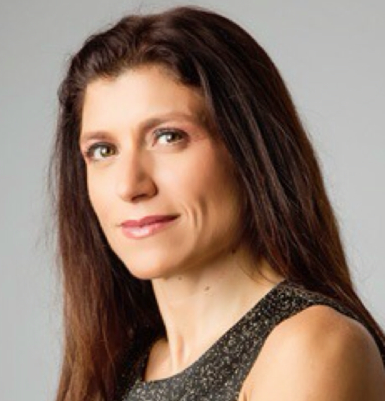
“The i4 Neuroleader Model & Methodology incorporates neuroscience and leadership in a way that promotes whole-body wellness, from the top down. A balanced brain can work to its full potential, in an innovative, creative, and inspiring manner. Understanding why people behave how they do is crucial for an effective leader.”
“I’m originally from Spain but currently based in Hong Kong. I head up coaching globally for the organisation that I work for. I have been in the Leadership Development and Executive Coaching industry for the last 18 years. I’ve also been an Executive Coach for the last 14 years and a Lifestyle, Wellness and Food coach for the previous 4 years.”
“The reason I chose to understand the science of the body in more detail was to be able to incorporate a more holistic leadership development approach to my practice. During the time that I spent learning the concepts of my Wellness qualification, I studied the brain, looking at how the brain works and how neurotransmitters like dopamine and serotonin really influenced how we felt and our tendency to behave in specific situations.
I was fascinated to learn that while behaviour is a choice, it is influenced by the health and balance of our brain. Even when there is total determination and willpower from our coachees, if the brain is not ‘balanced’ the likelihood of success in changing behaviours and for them to stick can be severely diminished. I had been looking for a  that incorporated the study of the brain with Executive Coaching, so it was really refreshing to find i4.”
that incorporated the study of the brain with Executive Coaching, so it was really refreshing to find i4.”
“The value of the methodology is as high for the coachee as it is for the coach. One of the areas that I worry about as a practitioner in my industry is how much some coaches unintentionally ‘judgment’ to their practice, based on their experiences, upbringing and their preferred coaching methods. This tends to be a blind spot, which is challenging to discuss with practitioners that are, in general, very self-aware and attuned to their development areas.
I am personally very interested in this approach because neuroscience provides real ‘objective’ scientific insights on why people have certain behaviours, typically unconsciously, at the workplace or home. Having a solid scientific background on ‘why’ of human reactions really helps my clients to accept the feedback and remain hopeful about their ability to change.
I work in the Financial services industry, and my typical clients are very senior leaders and global partners of the firm. Some of them may have been traditionally promoted mainly based on their exceptional IQ, technical ability, commerciality and ability to generate revenue growth for the company.
Leaders nowadays are expected to inspire and retain Talent and to have the ability to disrupt our own models, processes, and products before anyone else interrupts them. Leaders must also be humble but nimble and adapt to the changes we have been slow to identify, and preempt future needs and shape the industry. These continually growing demands may have been perceived as requiring a ‘superhero’ or a ‘super resilient’ leader to manage them. In reality, what they need is a conscious, present, collaborator, who is a brain-healthy and inspiring leader.”
“Gone are the days of debating ‘work-life’ balance. I believe this is a totally out of date term, as work is a fundamental part of life. If we are hoping for the time that we are ‘not at work’ to be brain-friendly to compensate for the time that we are ‘at work’, the math doesn't add up. The new generations have it figured out because they don't see the borders between work and life.
They want a very fulfilling life where they can have a sense of purpose and where they can influence the world they live in. These people are full of drive and enthusiasm, but they do lack experience and managerial and leadership maturity. That in itself is a motivating challenge for them.
Leaders that belong to more traditional generations that may not have adapted to changing times will struggle to understand how to adjust their behaviours for sustainable success in the current operating environment. In fact, some of them rebel against the idea of change and reject the feedback that is coming loud and clear from their ecosystem. Helping leaders to drive change and understand and leverage others' motivation is vital to the success of the organisation.”
“I am very pleased to see the 4 key competencies and the 16 pillars of the  encapsulating all aspects required to understand how one can become a neuroleader for the success of the organisation and for personal growth.
encapsulating all aspects required to understand how one can become a neuroleader for the success of the organisation and for personal growth.
In Financial Services, the majority of the leaders show a default preference to making sense of the world through logic, empirical evidence, scientific proof and mathematical and financial models.
I believe the i4 Neuroleader Model provides that rigour and scientific background that can really engage my clients. They are then able to put to rest their potential prejudices on the validity of the model and really have an in-depth conversation about their strengths and potential limitations to become successful and healthy neuroleaders. I am looking forward to continuing my path in the certification and using the model.”
These Stories on i4 Neuroleader Methodology

Managing Director, Financial Services
Originally from Spain, but currently based in Hong Kong heading up coaching globally for a financial organisation. I am an executive coach specialising in leadership development, lifestyle, wellness & nutrition.
Monday to Friday
9:00am - 5:00pm (AEST)
Sydney, Australia
We reply within 48 hours!
General Business Enquiries:
hello@aboutmybrain.com
Technical Support:
support@aboutmybrain.com
No Comments Yet
Let us know what you think